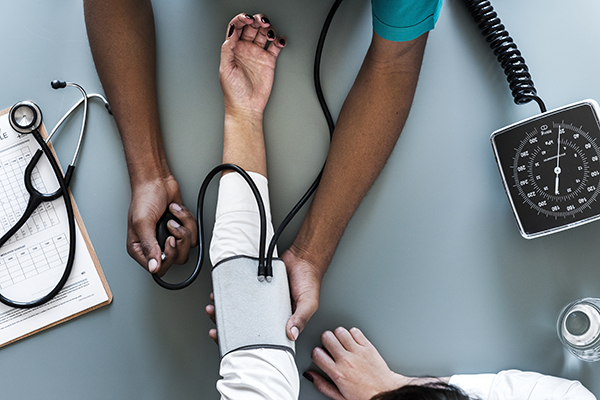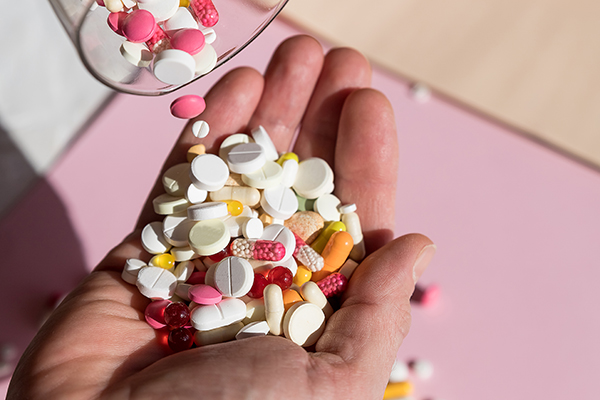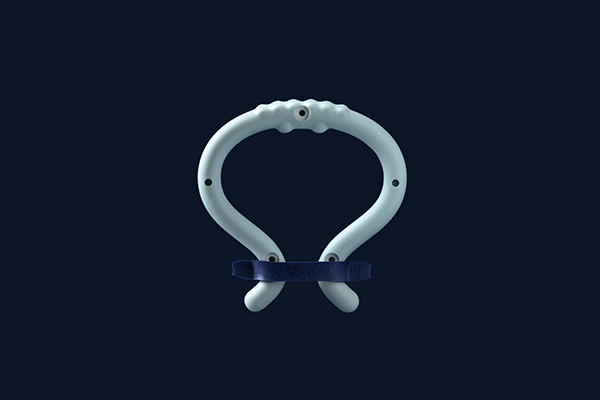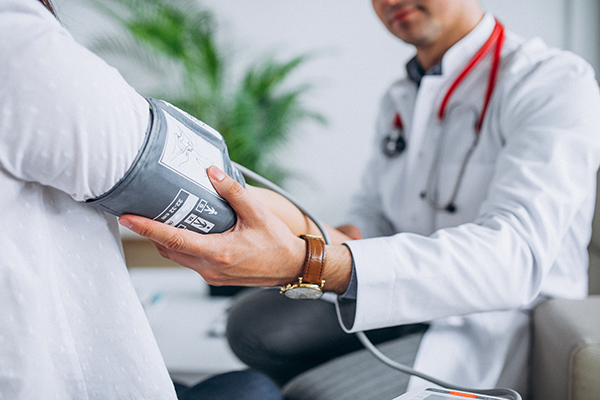You already know how damaging high blood pressure can be to your overall health. But it can do a lot of damage in the bedroom as well by increasing your chances of erectile dysfunction. Not only can the condition itself lead to ED, a lot of the medications used to treat high blood pressure can kill your erection as well.
The good news is there are a lot of ways you can either prevent high blood pressure or treat it without having to resort to taking pills. Even if you do have to take medications, there are drugs that can lower the chances you’ll experience ED.
Here’s a look at what causes high blood pressure, what’s considered normal blood pressure, and the connection between HBP and ED.
Learn more about ED by checking out the ED Guide Video Library.
What is High Blood Pressure?
Whether you call it high blood pressure or hypertension, it’s bad, bad news for your heart and the rest of your circulatory system. It means the force of the blood moving through your vessels is too high. If you don’t treat it, high blood pressure can greatly increase your chances of suffering a stroke or a heart attack.
As scary as that sounds, the even scarier fact is that about half of Americans who have the condition don’t even know it. The only way you can tell for sure is to have your doctor check your blood pressure, or check it at home using a blood pressure monitor.
What Causes High Blood Pressure?
There’s really no single cause of high blood pressure in most instances. It’s a problem that develops gradually.
There are certain health problems, however, that can lead to hypertension. These include thyroid or kidney issues, sleep apnea, and birth defects of the blood vessels. Use of certain medications (cold medicines, pain relievers and some prescription drugs) or illegal drugs (cocaine and amphetamines) can also elevate your blood pressure.

What is Considered High Blood Pressure? What’s Normal Blood Pressure? What are the Symptoms?
You’ve probably run across the terms “systolic” and “diastolic” blood pressure at one time or another. But what do these actually mean?
Let’s say your blood pressure is 118/73 (which is really good, by the way). The first number is your systolic blood pressure. It’s a measure of the amount of pressure your blood puts on your artery walls every time your heart beats.
The second number is your diastolic blood pressure. It shows how much pressure your blood exerts on the artery walls between heartbeats.
Both numbers are important, but high systolic blood pressure is more closely associated with cardiovascular problems – especially in people older than 50. The higher your numbers, the higher your risk for stroke and heart disease.
So what’s normal and what’s high? The American Heart Association (AHA) has a chart that spells it out perfectly. Here’s a quick breakdown of what the numbers mean.
- Normal (Systolic less than 120, Diastolic less than 80) – If you have normal blood pressure, congratulations. More importantly, keep doing what you’re doing.
- Elevated (Systolic 120-129, Diastolic less than 80) – You need to make a few changes or you’ll probably develop high blood pressure down the road.
- Stage 1 Hypertension (Systolic 130-139, Diastolic 80-89) – Unfortunately, you have high blood pressure. But don’t panic – there are a lot of ways to get it under control. Your doctor may recommend lifestyle changes or medications, depending on how high he or she determines your risk of developing cardiovascular problems.
- Stage 2 Hypertension (Systolic 140 or higher, Diastolic 90 or higher) – This obviously isn’t good. You’ll probably have to take medication as well as make changes to your lifestyle.
- Hypertensive crisis (A sudden increase to more than 180/120) – If you get a reading this high, the AHA recommends you wait five minutes and take another reading. If it’s still high, call your doctor. If your reading is this high and you’re experiencing any numbness, weakness, chest pain, back pain or shortness of breath, call 911 immediately.
High blood pressure is also known as the “silent killer,” and for good reason. There are no classic high blood pressure symptoms. People can have it for years without knowing.
You might have heard that people with this condition can sometimes have trouble sleeping, feel flush, and sweat a great deal. That’s simply not the case. If you think that just because you feel fine you don’t have high blood pressure, think again. Get yourself checked out to make sure.

The Connection Between High Blood Pressure and ED
If you have trouble getting or maintaining an erection, high blood pressure might be part of the reason why.
When you have high blood pressure, the arteries that carry blood to the penis don’t work as they should. They can’t dilate, or widen. Also, the smooth muscles in the penis can’t relax. This combination really sucks – it basically kills any chance of getting and staying hard.
If you have low testosterone on top of high blood pressure, that can make things even worse. You have a difficult time getting aroused in the first place.
Some of the medications men take for high blood pressure can also play a role in ED. The two hypertension drugs most commonly associated with ED are diuretics and beta-blockers. Diuretics can reduce the force of blood that flows into the penis, and can also decrease the body’s supply of zinc. The body needs this mineral in order to make testosterone.
Beta-blockers can sometimes deaden the nerves in the penis that you need in order to get an erection. They can also leave you feeling tired, and – in some instances – even a little depressed. When you feel that way, it might be nearly impossible to get in the mood in the first place.

The Connection Between High Blood Pressure and Sex in General: It’s Not Just a “Guy Thing”
Men aren’t the only ones who can have problems in the bedroom due to high blood pressure. Women can experience a reduction in blood flow to the vagina. This often leads to a loss of arousal or desire, vaginal dryness, and problems reaching orgasm.
Whether you’re a man or a woman, just one episode of a sexual problem sometimes leads to anxiety – even fear. A lot of people are worried that it will happen again. If this applies to you, talk to a doctor.
What Kinds of Treatments are Available for High Blood Pressure?
We already touched on a couple of medications used to treat high blood pressure. Diuretics, or water pills, are designed to stimulate the elimination of water and sodium. This reduces the volume of blood, making it easier for blood to move through your vessels and arteries.
Beta-blockers block the effects of adrenaline. This makes your heart beat more slowly, reducing the force of blood flowing through your body.

Hypertension Medications that May Lower the Risk of ED
There are a few medications that are less likely to cause ED and other sexual issues. These include the following:
- Angiotensin-converting enzyme (ACE) inhibitors – These help inhibit the development of a chemical known as angiotensin, which narrows the arteries. This helps open up the vessels and reduce blood pressure.
- Angiotensin II receptor blockers – Like ACE inhibitors, these drugs affect the production of angiotensin. In order to narrow a blood vessel, angiotensin needs a receptor to bind with. Angiotensin II receptor blockers keep that from happening.
- Calcium channel blockers – These keep calcium from getting into the cells of the heart and arteries. As a result, the heart doesn’t contract as forcefully, and the arteries relax.
If you have high blood pressure and ED, talk to your doctor to see if one of these medications might work. In some cases, a doctor will recommend a temporary reduction in medication to see if a patient’s sex life gets better. These patients will typically need to have their blood pressure checked more often to stay on the safe side.
Never, ever stop taking any high blood pressure medication – or try to change your medication – without speaking to your doctor first. Check out our blog for more info about popular prescription drugs that cause ED.
Reducing High Blood Pressure Without Having to Take Medications
A lot of people with high blood pressure don’t have to take drugs. They can improve their condition by making some lifestyle changes. These are just some of the more common ones.
- Lose weight
- Get more exercise
- Eat healthier
- Reduce your sodium intake
- Quit smoking

Giddy's Device for ED, Eddie, Can Help With the Sex Aspect
If you have high blood pressure and have trouble maintaining an erection, Giddy might be able to help.
Eddie is a device designed to help you stay hard. It’s non-invasive and has been years in the making. Eddie fits the exact (oval) shape of your penis, helping blood stay in the shaft. It doesn’t put any pressure on the arteries or the urethra, helping you ejaculate more freely as a result.
You can also feel free to wear a condom when using Eddie. The device is worn at the base of the penis, so you can rest easy knowing your condom will be able to do its job.
Eddie isn’t just some cheap sex toy you can get at a gas station. It’s a safe, proven device that works when used as directed. Get in touch with us if you have any questions or want to learn more.
Legal Disclaimer: We appreciate you taking part in the discussion about sexual health and wellness. Because we include information about medical conditions and treatments, please note the following: Information provided on this site is for general informational purposes only. Any information provided here is not for the purpose of diagnosing, treating, curing, mitigating, or preventing any type of disease or medical condition. Before beginning any type of treatment regimen you should always seek the advice of your licensed healthcare professional.
And remember, if you think you have a medical emergency, call your doctor or 911 immediately.
All information on this site is provided in good-faith, however, Giddy Holdings, Inc, and its agents and employees, make no representation or warranty of any kind, express or implied, regarding the accuracy, reliability, or completeness of this content. Under no circumstances shall we assume any liability to you for any loss or damage of any kind incurred as a result of the use of this site, or the reliance on any information provided herein. Any application of the material provided here is at the reader’s sole discretion and responsibility.







